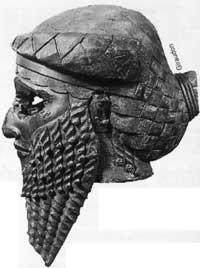Akadi Empire and Drought
The world's first great empire, the empire of the Academy, was created by King Sargon about 4,300 years ago. It was somewhat above the confluence of the Tigris and Euphrates rivers. Then that empire was destroyed, but we don't know why. According to Mesopotamian legends, the pride of the young son of Sargon caused the gods to become enraged and that is why the empire was lost. However, a group of American and French scientists have drawn other conclusions.

In present-day Syria, Shekhna, a layer of 6 millimeters thick volcanic ash has been discovered. At that time, therefore, there was a great eruption, but the absence of volcanoes in Mesopotamia suggests that these powders came from Turkey.
Geological studies, on the other hand, have detected less beans, which means a decrease in river waters, that is, a drought. There is no relation between rash and drought, since volcanoes do not cause such abrupt and long changes in the climate. The drought was three hundred years and affected from India to the seas of Egypt and Aegean. The temperature also decreased.
It is to be expected that such harsh climate change will affect that civilization that lived on agriculture. About ten thousand people lived in Shekhna and people had to flee leaving their homes.
It is necessary to resume the ancient history of that territory in the light of recent discoveries. The same can be thought of other territories depending on the climate. However, although history is clarified, another question arises: what caused that drought?





